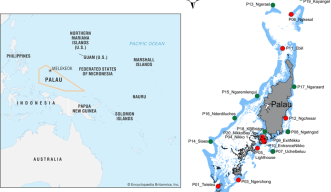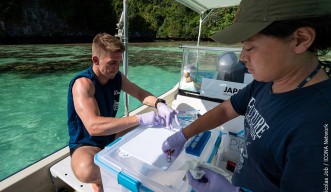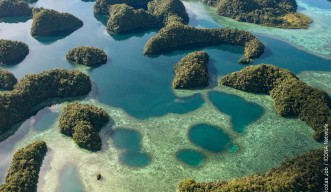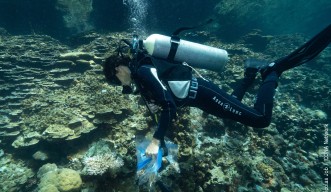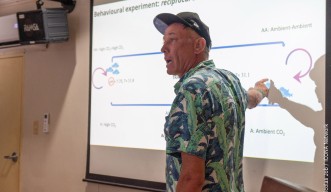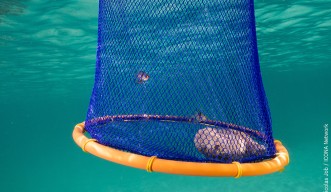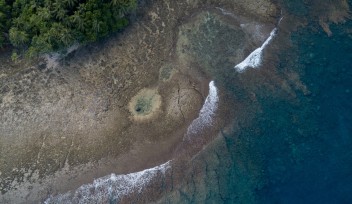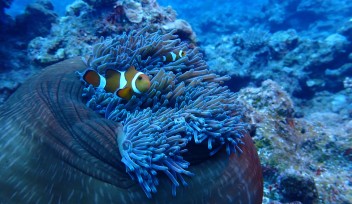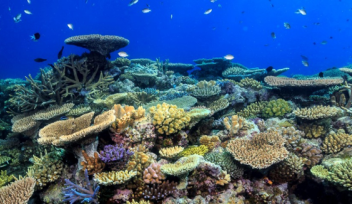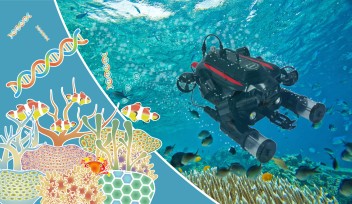Natural analogues: Pushing the frontiers of research on coral reefs and climate change
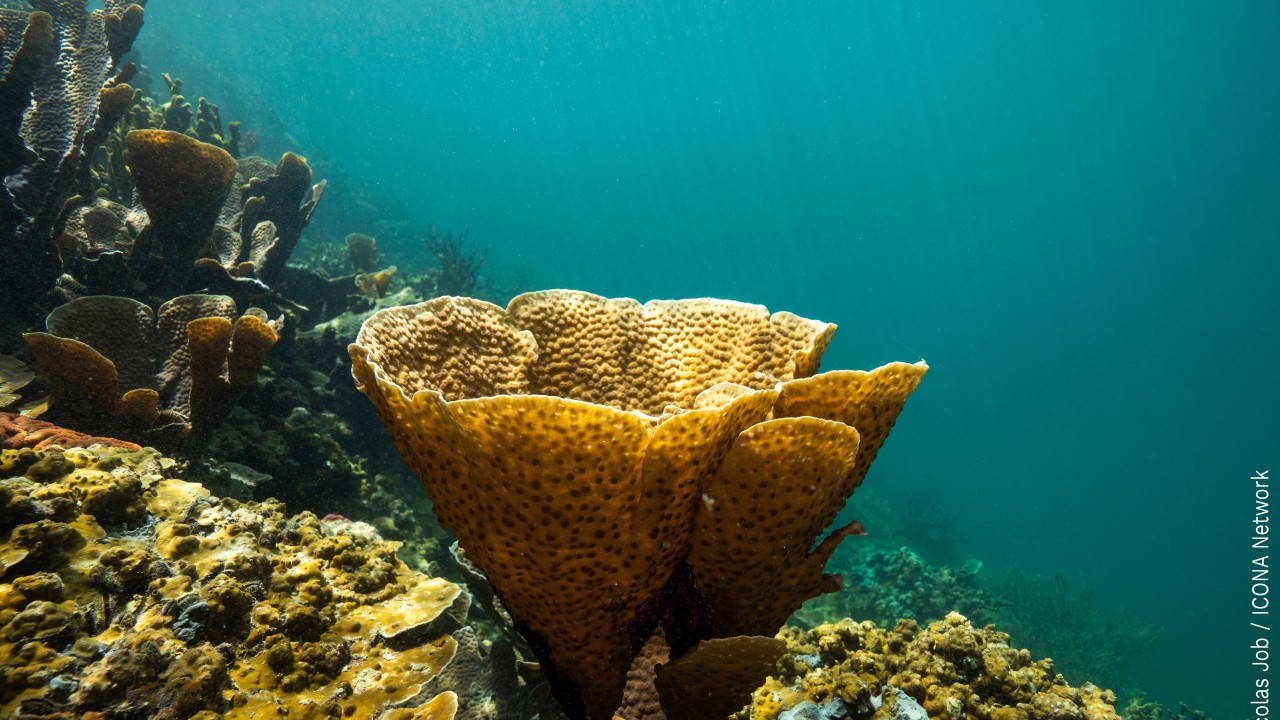
Three researchers at the Marine Climate Change Unit at the Okinawa Institute of Science and Technology (OIST) recently joined 13 scientists on an expedition to Nikko Bay, Palau. The project was part of the JSPS funded International CO2 Natural Analogues Network (ICONA), comprising of a multinational team of 16 ICONA members from Japan, Italy, New Caledonia, Hong Kong, and the United Kingdom, who were based at the Palau International Coral Reef Center from 15 to 29 April.
Natural analogues are areas with unique geophysical and geochemical features that create environments similar to those predicted by the end of the century due to climate change. Nikko Bay, a semi-enclosed limestone lagoon, is an example of a natural analogue. The area has many mangroves and less exchange of water from the open ocean, so not much water is recycled in the bay, resulting in acidic and hotter conditions with low oxygen levels. Although these conditions are extreme, there are still coral reefs and fish that live there, meaning that these fish and coral have somehow adapted to the extreme conditions.

“We believe that by studying these fish and coral living in natural analogues, we may learn what will happen to coral reef ecosystems in the future,” Prof. Timothy Ravasi, leader of the Marine Climate Change Unit explained. “For example, what would happen to coral reefs in Okinawa, which is not a natural analogue, if we reach the ocean acidification level predicted by the end of this century? How will they change and are they going to be like the ones that we have seen in natural analogue areas?”

His team studied the behavior of the Pajama Cardinalfish, an abundant species in Nikko Bay, using underwater cameras. Part of their research involved removing fish from areas with a low pH and placing them in a site where the reef is normal, and similarly collecting fish from a site with a normal pH and transferring them to an area with low pH. The fish were kept under water for four days to acclimatize, and experiments were done to check for differences in behavior in both groups.
Underwater surveys were conducted under normal reef conditions to see how fish behave in their usual environment, and further molecular and genetic studies on the possible impacts on the tissues of the fish will be conducted at OIST.

“This is the first time we combine a genetic study and a behavioral study, so this is the most complete experiment that has been done so far,” Prof. Ravasi said. “What we noticed in several natural analogues is that coral reef systems tend to be more simplified and less productive, with much less coral and fish diversity, which could threaten ocean ecosystems and the communities that depend on them.”
He highlighted that coral reefs are one of the most productive ecosystems, with about 1.9 billion people in Asia depending on them, including Japan. Most of whom rely on these ecosystems for their main sources of protein and are particularly at risk if the productivity of coral reefs is reduced because they often lack alternative food and income sources.

“We don’t know how coral reefs will bounce back once they are compromised. We can study natural analogues and try to understand what will happen in the future, but prevention is always better than restoration and prevention can now only be done by reducing CO2 production in society,” Prof. Ravasi explained. “Natural analogues have had time to develop over millions of years, so the problem of climate change is that we are changing the environment and water very fast, maybe too fast to give time to the ecosystem to adapt.”

Many industries in Okinawa are dependent on coral reefs, mostly for tourism and fishing activities. “If we destroy or compromise the coral reefs in Okinawa due to ocean acidification and land reclamation, the population will be severely affected,” Prof. Ravasi stated. “At OIST, coral reef research tries to create awareness on better protecting our coral reefs because they are the past, present and future of the Okinawan economy.”
Image credits: Nicolas Job - Nicolas Job | LinkedIn

Research Unit
For press enquiries:
Press Inquiry Form
